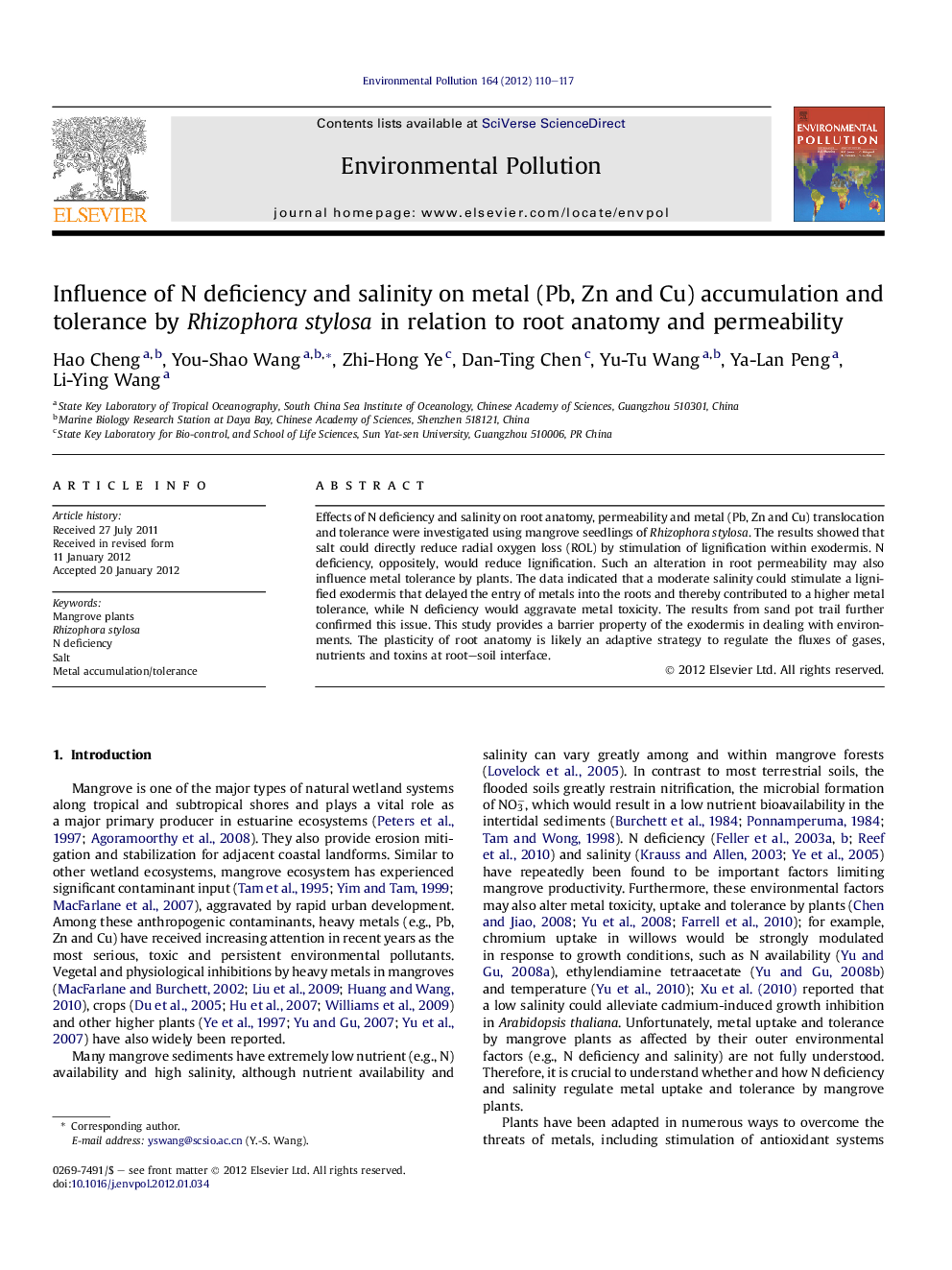| Article ID | Journal | Published Year | Pages | File Type |
|---|---|---|---|---|
| 4425065 | Environmental Pollution | 2012 | 8 Pages |
Effects of N deficiency and salinity on root anatomy, permeability and metal (Pb, Zn and Cu) translocation and tolerance were investigated using mangrove seedlings of Rhizophora stylosa. The results showed that salt could directly reduce radial oxygen loss (ROL) by stimulation of lignification within exodermis. N deficiency, oppositely, would reduce lignification. Such an alteration in root permeability may also influence metal tolerance by plants. The data indicated that a moderate salinity could stimulate a lignified exodermis that delayed the entry of metals into the roots and thereby contributed to a higher metal tolerance, while N deficiency would aggravate metal toxicity. The results from sand pot trail further confirmed this issue. This study provides a barrier property of the exodermis in dealing with environments. The plasticity of root anatomy is likely an adaptive strategy to regulate the fluxes of gases, nutrients and toxins at root–soil interface.
► Salt induced lignified exodermis which slowed down metal entry into the plants. ► N deficiency, oppositely, aggravated metal mobility and toxicity. ► Barrier properties of the exodermis.
